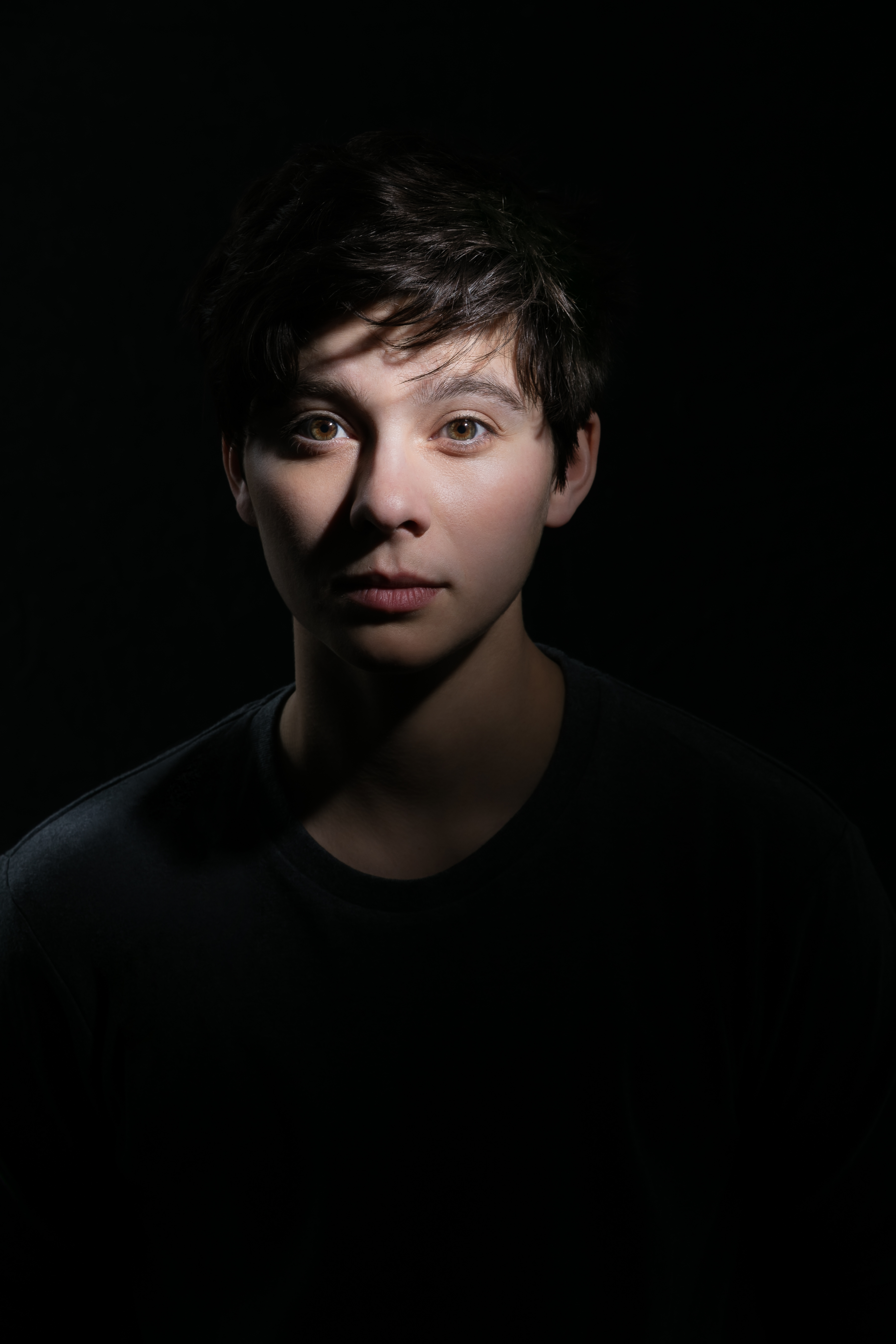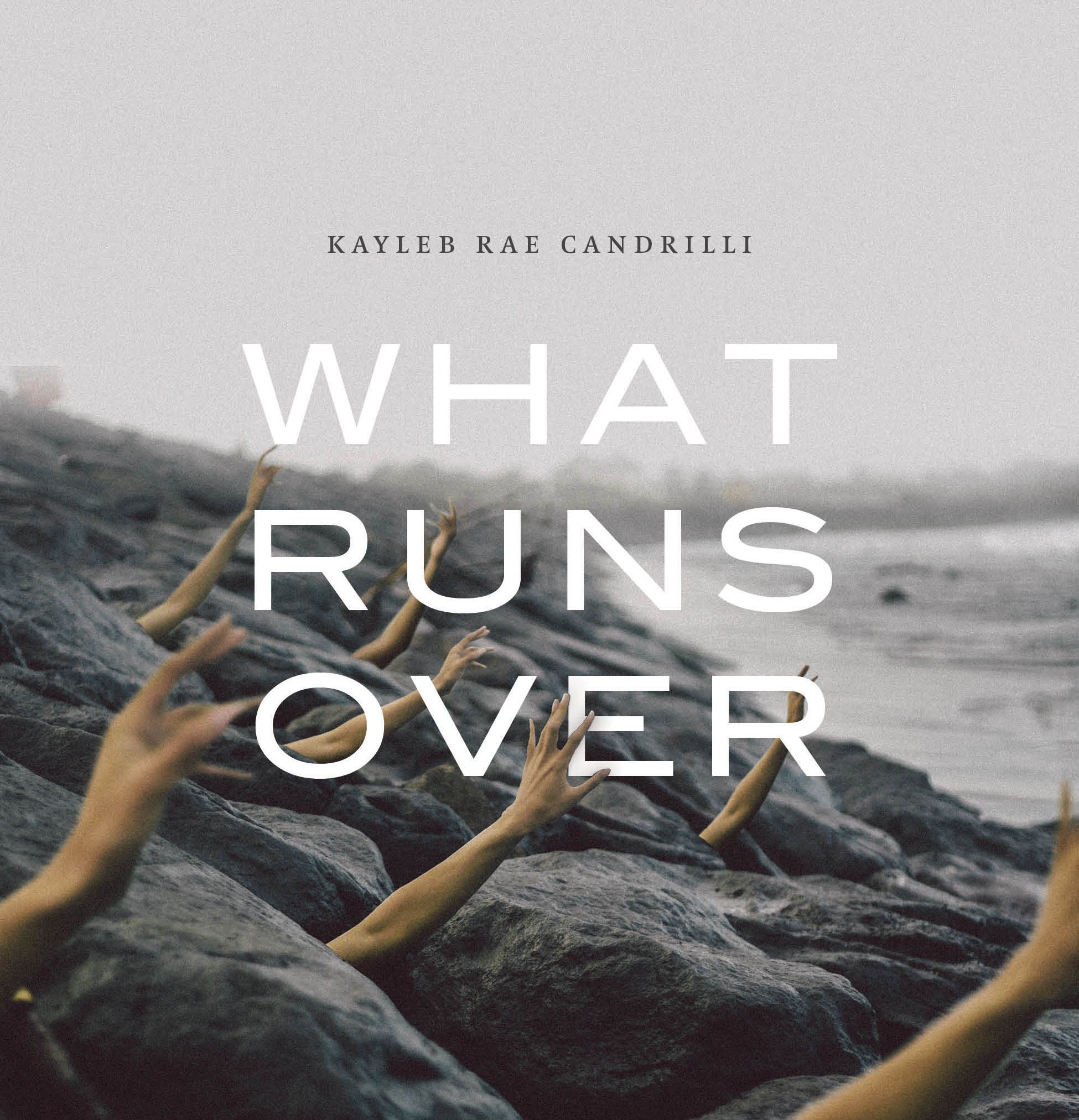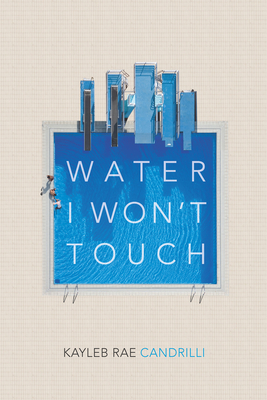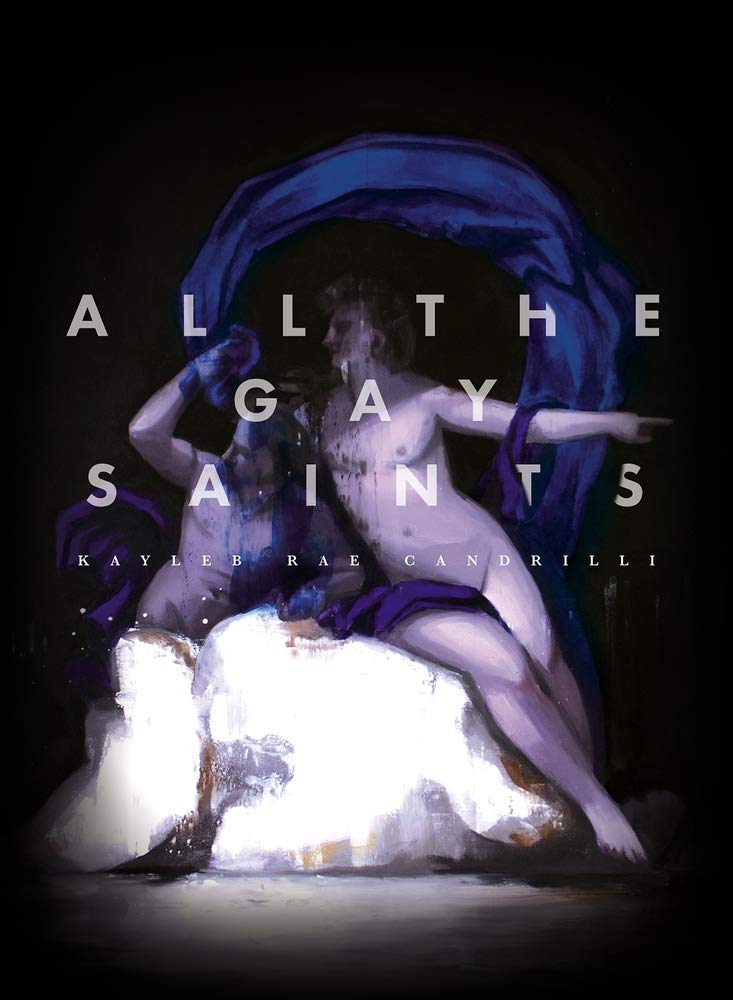Kayleb Rae Candrilli is the recipient of a PEW fellowship and a fellowship from the National Endowment of the Arts. They are the author of Water I Won’t Touch, All the Gay Saints, and What Runs Over. They live in Philadelphia with their partner.

-
What Runs OverFrom"What Runs Over"
I imagine my daddy’s mind
looks most like broken
dryer machines
scattered in a forest,
field mice living
in the leftover lint.
I imagine it looks
like stepped-on
syringes, too,
flies stooping
down to sop up
all the sweet.
 What Runs Over:
What Runs Over: -
What Runs OverFrom"What Runs Over"
in the house on the hill
we hung coyotes on the wall
and our lab bark-whimpered,
confusing them for mirrors,
or oracles, maybe even, a premonition
of a strung up future.
they hung there and i pet them, combed
them for summer shed that wouldn’t come.
i’ve never seen a wolf
in the wild. elusive dog.
but i’ve seen bears, bobcats, & lions
built exclusively for the mountain,
appalachian cats—
sphinxes riddling away at me,
boring holes.
& daddy was always taking shots
out the window
exploding them
to rorschach.
 What Runs Over:
What Runs Over: -
What Runs OverFrom"What Runs Over"
In early Autumn I’d fire up the woodstove and feed it
infestations of everything. I’d exterminate the house,
rip the silverware drawer from its track and choke
the stove with the carpenter ants that crawled there.
I’d toss in sprung rat traps and shovel in the still wet
wood I had hauled, ripe with termites and wood worms.
By Halloween all we smelled was apple cider
and burning bark. The vat of cider boiled
from October on and my mother would toss
in citruses, cranberries, cinnamon sticks. I’d contribute
ears: deer, fox, coyote. Sometimes their whole faces, ripped
into masks. Sometimes my own. Red-blooded, it burned
hard on the way down.
 What Runs Over:
What Runs Over:
"When Roethke said 'energy is the soul of poetry,' he might have been anticipating a book like What Runs Over, which is so full of energy it practically vibrates in your hand. Here, Candrilli’s speaker sticks their tongue 'into the heads / of venus fly traps just to feel the bite,' then later, burns holy books in the backyard and rolls around in the ashes until they become 'a painted god.' This is the verve of an urgent new poetic voice announcing itself to the world. As Candrilli writes: 'This is what I look like / when I’m trying to save myself.'" —Kaveh Akbar, author of Calling a Wolf a Wolf
“Kayleb Rae Candrilli's first book What Runs Over is a triumphant, daring, & filthy collection of letters. It grips sorrow, kink, desire, memory, family, queerness, nostalgia between its gnarled teeth & shakes. When I finished reading it, I was shaking. Be careful reader as this book will leave you shook.” —sam sax, author of bury it
“Part fist-to-the-face-of-God, part pain-drunk-howl, part sex-slick-reverie, Kayleb Rae Candrilli’s debut book, What Runs Over, is brutal and necessary. You will be taken to a mountain, dear reader, and there you will experience the violence of isolation and proximity. But you can (and I do) trust a writer who says, ‘the pain of being cut to pieces is lovely’ and then pays equally deft attention to the pain, the pieces, the loveliness, and the cut.” —TC Tolbert, author of Gephyromania
Selected Works

- Print Books
- Find your local bookstore (via IndieBound)
- Bookshop


- Print Books
- McNally Jackson
- Powell's
- Tattered Cover

The most unsettling of lullabies, Kayleb Rae Candrilli’s verse memoir unfolds with savage grace as it lays bare the violence and isolation of a trans person’s coming of age. It is a dazzling addition to literature about rural childhoods. In looping imagery of animals and decay, Candrilli gives their uncompromising vision of the wages of familial love and the various ways a young person can devise their own escape. They show how language has the power to shape and to misshape the self, and their work feels as urgent and electric as a living thing.